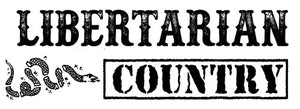Keynes Hayek: The Clash That Defined Modern Economics is a meticulously researched novel highlighting the personal lives of John Maynard Keynes and Friedrich Hayek, and their long-running clash revolving around economic thought.
Wapshott, implementing his journalistic flare, delivers sharply written detail. Readers are sure to be dazzled by Wapshott's undeniable skill with the written word.
Although Wapshott seems to have a slight inclination towards Keynes, his objective, journalistic approach allows for unbiased reporting, making this book a delight for fans of Hayek and/or Keynes.
The bulk of the book centers around Keynes and Hayek disputing one main economic state; equilibrium. More specifically, 'Keynesian Equilibrium' vs 'Laissez-faire' or classical economic equilibrium.
What makes this book entertaining, is that instead of merely pitting theory vs. theory, Wapshott delves into the worlds of not only the individual theorists, but how this clash affected academia, future economists, national leaders, and the economy as a whole throughout the succeeding generations.
One account of Keynes and Hayek's personal life that I found intriguing was when John Maynard Keynes passed away and Hayek wrote to Keynes' wife.
In Hayek's letter to John's wife, Lydia Lopokova, he expressed remorse, describing Keynes as "the one really great man I ever knew, and for whom I had unbounded admiration. The world will be a very much poorer place without him."
Hayek's admiration for Keynes, despite their years of often bitter rivalry, is a key lesson; one that we should be reminded of even today.
Even if we become bitter in robust debate, it is noble to at least consider your opponents on a human level, and dare accept the possibility that they may even become your friend, regardless of political differences.
I don't want to divulge too much about the actual clash (because that's the interesting part) between Hayek and Keynes, but I assure you it's a fascinating journey.
I would recommend this book as casual reading to those with an interest in politico-economic history. For aspiring economists and students of economics, I would highly recommend this book.


